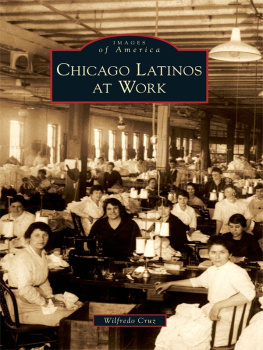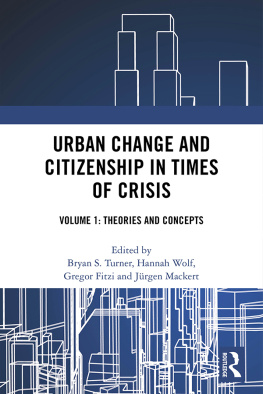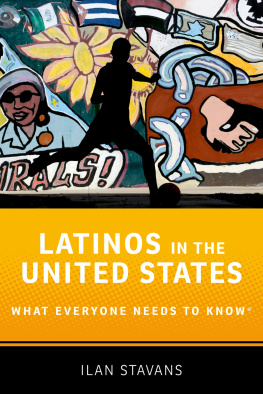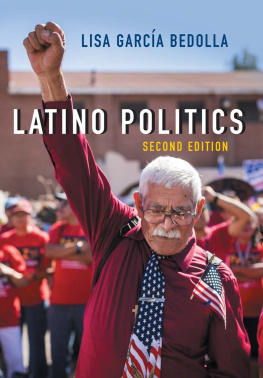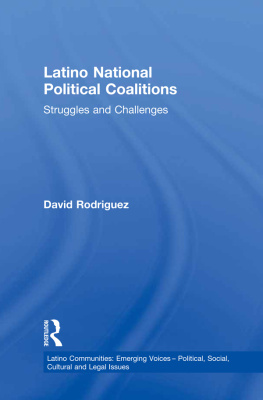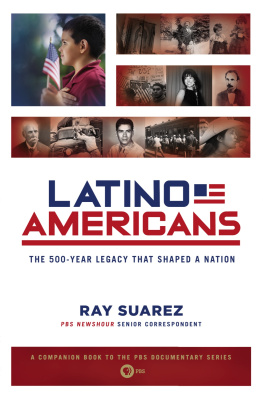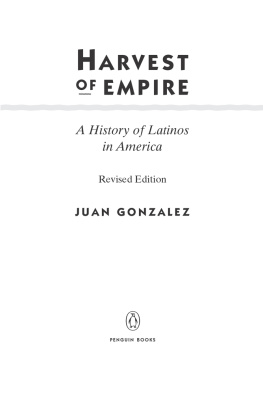This book was published with the assistance of the Authors Fund of the University of North Carolina Press.
2017 The University of North Carolina Press
All rights reserved
Manufactured in the United States of America
The University of North Carolina Press has been a member of the Green Press Initiative since 2003.
Portions of Chapters 1, 2 (including map 2), and 7 appeared previously in different form in Llana Barber, If We Would... Leave the City, This Would Be a Ghost Town: Urban Crisis and Latino Migration in Lawrence, Massachusetts, 19452000, in Confronting Urban Legacy: Rediscovering Hartford and New Englands Forgotten Cities, ed. Xiangming Chen and Nick Bacon (Lanham, Md.: Lexington Books, 2013), 6582. The Chapter 4 epigraph is from Martn Espada, Toque de queda: Curfew in Lawrence, in Trumpets from the Island of Their Eviction (Tempe, Ariz.: Bilingual Press, 1987). Reprinted with permission.
Cover image: Workers in front of Lawrence Maid Footwear Inc., 1974. Photo by Richard Graber.
LIBRARY OF CONGRESS CATALOGING-IN-PUBLICATION DATA
Names: Barber, Llana, author.
Title: Latino city : immigration and urban crisis in Lawrence, Massachusetts, 19452000 / by Llana Barber.
Other titles: Justice, power, and politics.
Description: Chapel Hill : The University of North Carolina Press, [2017] | Series: Justice, power, and politics | Includes bibliographical references and index.
Identifiers: LCCN 2016051603 | ISBN 9781469631332 (cloth) | ISBN 9781469631349 (pbk : alk. paper) | ISBN 9781469631356 (ebook)
Subjects: LCSH: Latin AmericansMassachusettsLawrenceHistory20th century. | Latin AmericansMassachusettsLawrenceEconomic conditionsHistory20th century. | Lawrence (Mass.)Emigration and immigrationHistory20th century. | Lawrence (Mass.)Race relationsHistory20th century. | Lawrence (Mass.)Economic conditions20th century. | Race riotsMassachusettsLawrenceHistory20th century.
Classification: LCC F74.L4 B37 2017 | DDC 305.8009744/5
dc23 LC record available at https://lccn.loc.gov/2016051603
Illustrations
View of Lawrence from the Ayer Mill clock tower, 1991
Workers in front of Lawrence Maid Footwear Inc., 1974
Latin Place, No Honkeys graffiti, 1979
Lower Tower Hill neighborhood after the riots, 1984
Teenagers and children parody the press during the riots, 1984
Children playing on junked cars, mid-1980s
People dancing at a Semana Hispana event, 1986
Acknowledgments
I am deeply grateful....
For the support I received while working on this project, including a Presidential Fellowship from the History Department at Boston College, an American Fellowship from the AAUW, and a Summer Research Grant from the State University of New York-College at Old Westbury.
To the Lawrence residents and organizers who formally shared their thoughts on the citys history with me through oral history interviews, Isabel Melendez, Jorge Santiago, Ingrid Garcia, Eric Spindler, and Armand Hyatt, and to Lawrence Housing Authority director Don ONeill, who gave me a guided tour of the citys public housing.
To the hardworking archivists who enabled my research, Barbara Brown, Susan Grabski, and the miraculous Amita Kiley at the Lawrence History Center; Louise Sandberg in Special Collections at the Lawrence Public Library; William Maloney and the Lawrence City Clerks office; the staff at the Andover Historical Society; Jennifer Fauxsmith and the Massachusetts Archives; the staff in Special Collections at the Massachusetts State Library; Jean Nudd and the National Archives and Records Administration Northeast Division; and Alison Pekel and the WGBH Educational Foundation Media Library and Archives. I am also grateful for the material sent electronically by Joan Keegan from the AT&T Archives and History Center. Armand Hyatt is due particular thanks for lending me his personal collection of documents regarding the Immigrant City Community Housing Corporation.
To the team at University of North Carolina Press, especially to my editor, Brandon Proia.
To my students and colleagues at Old Westbury who help keep my work oriented toward creating a just and sustainable society, Mandy Frisken, Laura Anker, Samara Smith, Sujani Reddy, Laura Chipley, and the entire American Studies Department, as well as Diana Sukhram, Amara Graf, and Jacqueline Emery. I am especially indebted to those colleagues who offered valuable feedback on portions of the manuscript, Carol Quirke, Jermaine Archer, Fernando Guerrero, Juan Pablo Galvis, and Cara Caddoo.
To the scholars who encouraged my interest in Lawrence, Marilisa Jimnez Garca, Jos Itzigsohn, Ramn Borges-Mndez, Bob Forrant, Nick Bacon, Deborah Levenson, and Cynthia Young, and particularly those who read parts or all of the manuscript, Avram Bornstein, Julio Cap, and Andrew Sandoval-Strausz.
To the dear friends who helped me keep perspective, Jason Banister, Lucy Herschel, Shauna Lavi, Gabi Moisan, Adam Freeman, Jessica Barletta, Bob and Megan English, Rachel Thompson, Brenda Laverde, Omis Wilson, Chris Kent, Christian Fernandez, and the community at Huracn Dance Studio. Les agradezco mucho to those friends who generously offered Spanish-language or transcription help, Paola Garcia, Nilda Hurtado, and Leora Johnson, or who read portions of the manuscript, Annie Danger and Danny Katch. I would have been simply adrift without May Lightfoot and Lindsie Bear, each of whom anchored me throughout this process.
To my mentors, Davarian Baldwin and Lynn Johnson, both of whom were tireless in offering insight and encouragement at every stage of this book, from conception to completion.
To my extended family in Providence, for their patience and support, Kim and Hok Heng, Kimnay Heng, and especially Chiv Heng, whose patience was tested more than most.
To my extended family in Lawrence, for keeping their homes open to me and for answering my ceaseless questions, Mercedes and Bill Spindler, Martiza Spindler and Julio Carrion-Leyva, Andrew Spindler, Tanya and Dylan Hawkins, and particularly to Eric Spindler, for introducing me to the city and letting me see it through his eyes.
To my sisters, Cate Barber Moran and Stephanie Barber, for whom the completion of this book was only ever a question of when, and to my parents, Eileen and John Barber, who provided immeasurable support and love.


